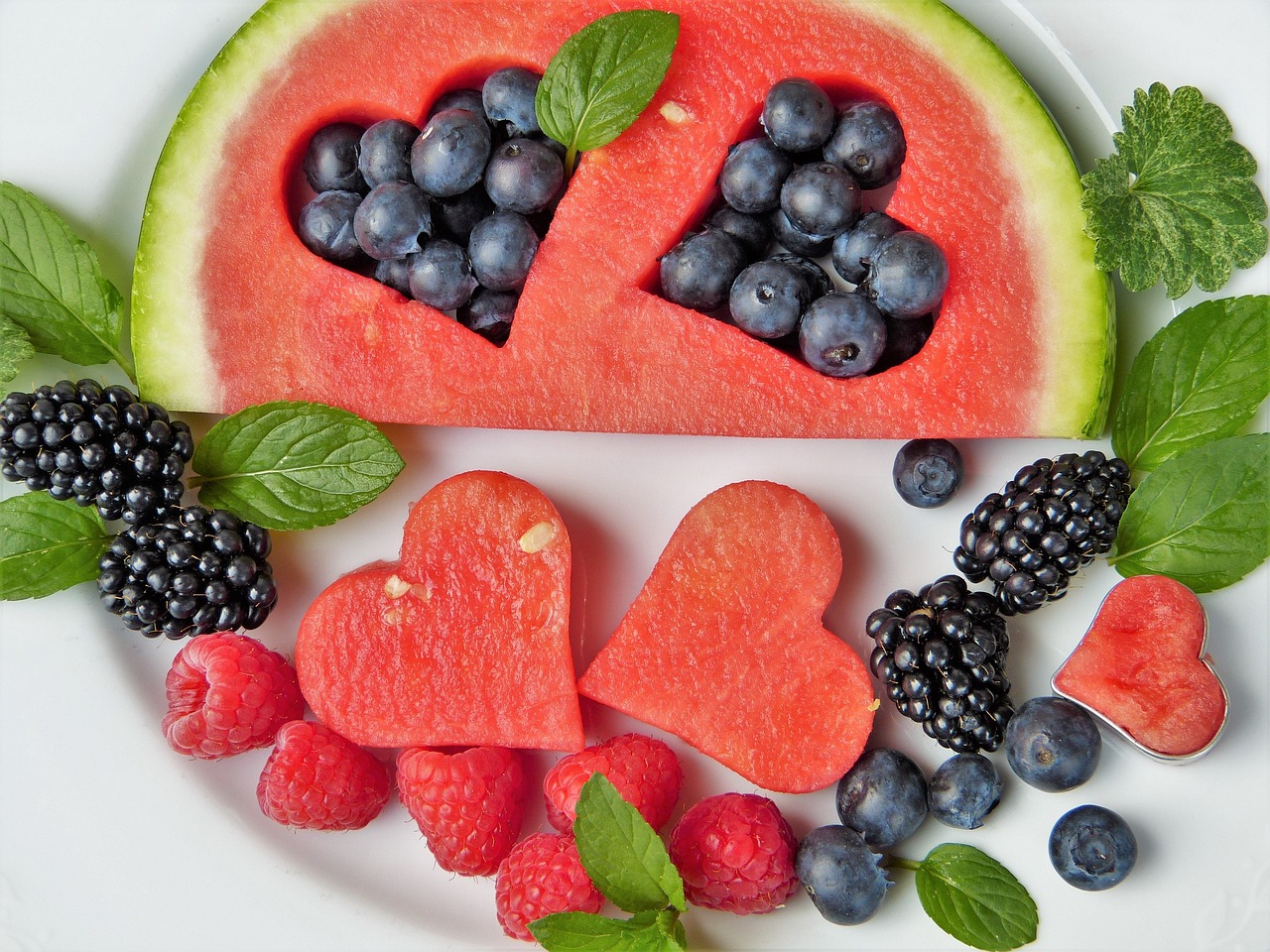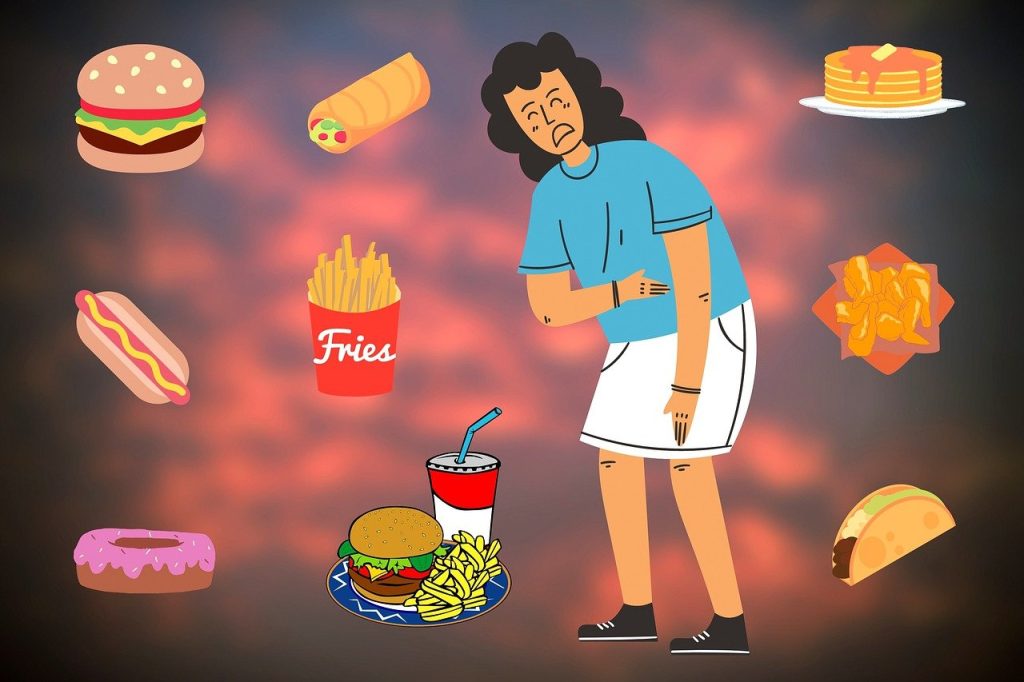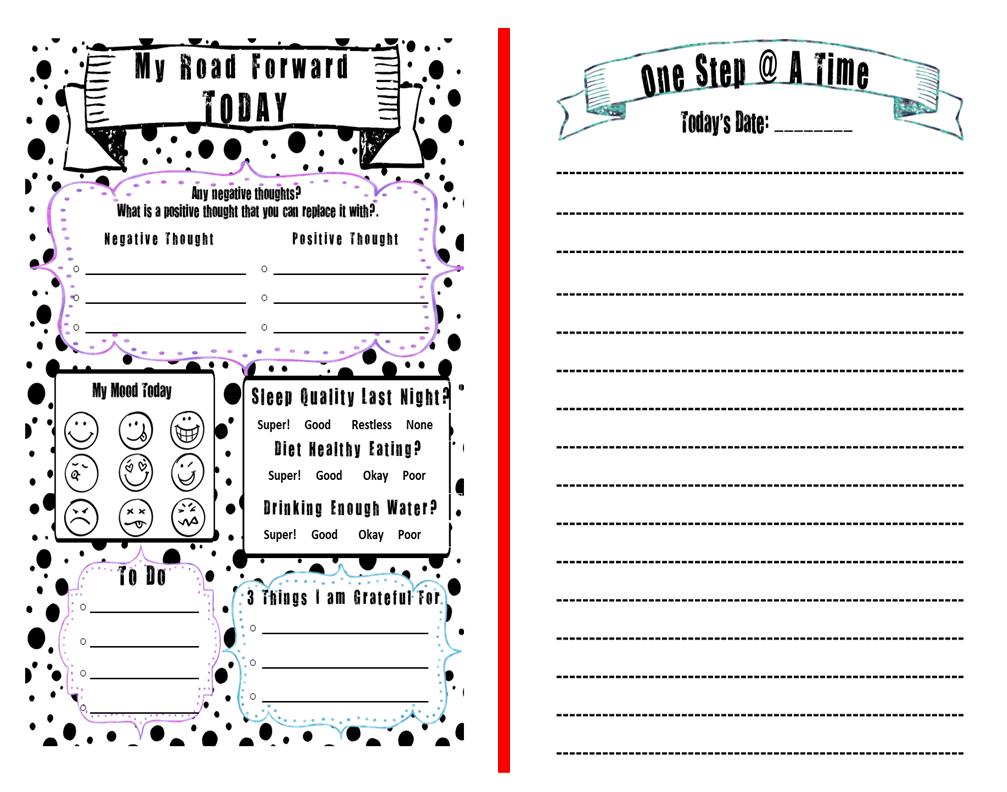Wellness
25 Simple Little Things that You Can Change in Your Life

Do you ever want to just drop everything, run away, and start anew? Changing your life doesn’t require resorting to such drastic measures. There are other ways to redirect yourself without completely displacing your existence. Here are a few simple things that you can do to start building a new you.
- 1. Change your perspective
Source: Pexels
Make yourself more open to new ideas. When you open your mind, you can change how you see things. There are so many different ways to see things!
- 2. Focus on the good things
Source: Pixabay
Stop fussing over the things that aren’t going right and be thankful for the things that are. When you train your mind to see the negative, you’ll end up seeing only that. But, if you start learning to look for the good in things, you build a whole dome of positivity around you.
- 3. Give some self love
Source: Unsplash
Don’t forget to take care of yourself. A bit of self-love every now and then is important to self that there are many important and valuable things in life – one of them being yourself.
- 4. Listen to yourself
Source: Unsplash
Your thoughts and opinions matter. Stop asking other people for advice and listen to your gut. It may lead you to great things.
- 5. Be the bigger person
Source: Pexels
That doesn’t mean that you should go around with a superiority complex. Being the bigger person isn’t about being self-righteous. It’s about seeing yourself as someone stronger than the obstacles and limits that others place before you. Learn to let go of the fears that hold you back.
- 6. Envision your goals
Source: Pixabay
What do you want to achieve? Imagine it, envision it, and create it. You can only move forward if you know which direction to go. Unfortunately, no one will give you a map to success. You have to create it yourself.
- 7. Don’t try to control everything
Source: Unsplash
There are many things way beyond your control. Let go of the need to be in charge of everything and let the tides flow. You can’t change the direction of the current but you can adjust your sails. Focus on the things that you do have control over.
- 8. Value yourself
Source: Pexels
You are not defined by your success or your failure. And you are definitely not defined by how others see you. You determine your self-worth.
- 9. Be curious
Source: Unsplash
Free your questioning mind. It is what motivates us to explore, discover, and learn. Exercise your mind by giving it a constant flow of knowledge – new things, new places, new people, new ideas!
- 10. Show your teeth
Source: Unsplash
Smile! Not that shy closed-lip kind of smile. A genuine display of pearly whites is warranted every now and then. If you’re gonna smile, do a big one.
- 11. Take it one step at a time
Source: Unsplash
You might be stressing over what’s coming up on the horizon. But, remember that the only way for you to actually get there is by placing one foot in front of the other.
- 12. Get off the grid
Source: Unsplash
Go camping; go on a hike; take yourself away on an island retreat; do anything that will give you a break from your regular routine – somewhere with no WiFi. Disconnecting from the world is a way to reconnect with yourself.
- 13. Say your Thank You’s
Source: Unsplash
Be thankful and show appreciation for the things that you have in your life. Showing gratitude is a way to promote happiness and well-being. When you take time and acknowledge the value of the things around you, you become a happier individual.This allows you to focus on the good things in your life, opening up the door to more positivity.
- 14. Broaden your palate
Source: Unsplash
One definite way to evoke a change in your life is to try new food. You might find a new favorite dish! There is so much variety in the food market nowadays that you can even challenge yourself to try something new every meal.
- 15. Reach out
Source: Unsplash
Make the effort to connect with friends, and maybe even reconnect with old ones. As social beings, we all thrive through our connections. Building a friendship takes time and effort but it is well worth it.
- 16. Get creative
Source: Unsplash
Find new hobbies, work on an exciting new project, and don’t be afraid to improvise. When you do something creative, you stimulate parts of the brain that you don’t often use in your day-to-day. Find a stress-releasing new project to do – painting, pottery-making, crocheting. If you’re more of a performer, join a theater group, or work on your own screenplay.
- 17. Try something new
Source: Unsplash
Don’t knock it ‘til you try it. You might have always labeled yourself as the indoor type who doesn’t enjoy hikes or outdoor adventures. Or you may be the adventurer who’d rather be out in the wild than at home with a book. Allow yourself to break free from your self-imposed labels and try something out of character. When you try something new, you might end up loving it or just confirming that you really don’t like it. Either way, you learn a bit more of yourself on the way.
- 18. Hydrate!
Source: Pexels
Drink more water! Proper hydration isn’t just important for your physical health, it’s an overall body booster. Most people take in way below the standards for what their body needs. In turn, they feel tired and unproductive throughout the day. Regularly hydrating yourself give your body the energy – it’s not all in the carbs – it needs to power through the day.
- 19. Get up and use your feet
Source: Unsplash
Walk more. You gain so much from a simple stroll around the block. It can improve your mental, physical, and emotional health. A light exercise, such as walking, stimulates the release of endorphins in your body, making you feel happier and more energized. Those who walk regularly give themselves a chance to get a breath of fresh air and connect with their surroundings.
- 20. Say No to Procrastination
Source: Pexels
Fight the urge to leave things for later. When you procrastinate, It’s based on the perception that you have the time to complete a task at a later time or day. You might think that you have the time to do it later so you use your time now to do things that aren’t even on your list of priorities. When you procrastinate, you demotivate yourself. You set yourself up for anxiety and panic. Avoid such scenarios by overcoming procrastination. It is just a matter of prioritizing the things important to you and going through that list with diligence.
- 21. Start your mornings slow
Source: Pexels
Give yourself a chance to take a deep breathe when you start your day. Have a good breakfast and your morning coffee before everything else. Wake up a bit earlier so you can give yourself some time to meditate and reflect in the morning. Your goal is to start your day with a clear mind.
- 22. No more white lies
Source: Pexels
It can be so easy to avoid certain confrontations by telling a white lie. It won’t hurt anyone, right? Wrong. Small lies are still lies. Avoid burdening yourself with guilt and the fear of getting caught in your lie by just facing the consequences by telling the truth. It may not be easy but it is the honorable and the right thing to do.
- 23. Get an early start to every day
Source: Pixabay
Successful people make it a habit to start their days early. They give themselves more time to work on themselves and to work on their goals. Making it a habit to wake up earlier also promotes better sleeping habits.
- 24. Let it out
Source: Unsplash
You have a cocktail of emotions. Everyone has the right to breakdown every once in a while. Letting yourself express all the emotions that you’ve had pent up inside you is an important step to changing your life. Shout it out to the wind, share it with a trusted friend, or write it all down in a letter. Letting go is letting yourself find peace.
- 25. Free your mind
Source: Pixabay
Give yourself time to pray, meditate, or just relax. Once a week, find some time for yourself. A bit of peace and quiet is good for the mind. When you meditate, you become more mindful. Your stress levels are lessened; you acquaint yourself with your pain; you improve your focus; and you become kinder to yourself.
You may like
Featured
Party’s Over: Unraveling the Mystery of Hangxiety

“Hangxiety” is a term used to describe the feelings of anxiety, unease, or nervousness that can occur during or after a period of heavy alcohol consumption, particularly during a hangover. While it’s not a formal medical term, it does reflect a real phenomenon experienced by many individuals.
The science behind hangxiety involves several factors:
- Alcohol’s Effects on Neurotransmitters: Alcohol affects the levels of neurotransmitters in the brain, including serotonin and gamma-aminobutyric acid (GABA). Serotonin is a neurotransmitter associated with mood regulation, and alcohol can temporarily increase serotonin levels, leading to feelings of relaxation and euphoria. However, as alcohol levels decline, serotonin levels may drop, contributing to feelings of anxiety and dysphoria.
- Alcohol Withdrawal: Hangxiety can also be a result of alcohol withdrawal symptoms experienced during a hangover. As the body processes alcohol and its effects wear off, individuals may experience symptoms such as sweating, trembling, increased heart rate, and feelings of anxiety.

- Disrupted Sleep: Alcohol consumption can disrupt sleep patterns, leading to poor-quality sleep or difficulty falling asleep. Sleep disturbances can contribute to feelings of anxiety and irritability the following day.
- Dehydration and Electrolyte Imbalance: Alcohol is a diuretic, meaning it increases urine production and can lead to dehydration. Dehydration, along with the loss of electrolytes such as potassium and magnesium, can exacerbate feelings of fatigue, weakness, and anxiety.
- Impact on the Amygdala: The amygdala is a region of the brain involved in processing emotions, including fear and anxiety. Chronic alcohol consumption can affect the function of the amygdala, potentially leading to heightened anxiety responses.
- Psychosocial Factors: Hangxiety may also be influenced by psychosocial factors such as individual personality traits, coping mechanisms, social environments, and the presence of underlying mental health conditions.

It’s important to note that while alcohol may temporarily alleviate feelings of anxiety in the short term, excessive or prolonged alcohol consumption can exacerbate anxiety and contribute to the development of anxiety disorders over time. If hangxiety or alcohol-related anxiety becomes a frequent or concerning issue, seeking support from a healthcare professional or mental health provider is advisable. Additionally, practicing moderation in alcohol consumption and prioritizing self-care strategies such as adequate sleep, hydration, and stress management can help mitigate hangxiety and promote overall well-being.
Wellness
Finding Joy and Strength in Your Recovery Journey This Holiday Season

The holiday season can be a time of joy and celebration, but for those who are on a recovery journey, it can also bring unique challenges. Whether you are recovering from addiction, mental health issues, or any other form of personal struggle, the holiday season may intensify feelings of loneliness, triggers, and emotional vulnerability. However, it’s important to remember that amidst these challenges lies an opportunity for profound growth and transformation.
This holiday season can also be a time of deep reflection and healing for those on a recovery journey. As the year draws to a close, it presents an opportunity to look inward, assess our progress, and find solace in the process of growth and transformation. It is during this seasonal transition that we have the chance to embrace our vulnerabilities, acknowledge our achievements, and pave the way for a brighter future.

Amidst the glittering lights and festive decorations, we can use this time as a catalyst for self-discovery. It provides us with moments of respite from the demands of daily life, allowing us to delve deeper into our emotions and understand ourselves on a profound level. Through contemplation and introspection, we can gain valuable insights into our recovery journey—recognizing both its challenges and triumphs.
The Power of Gratitude
During this season and looking back on this year, it can be easy to focus on what is lacking or the challenges we face. However, cultivating an attitude of gratitude has the power to transform our perspective and ignite a sense of joy and strength within us. Gratitude is not merely about being thankful for the good things in life; it is about finding appreciation in every moment, even during adversity.

When we consciously practice gratitude, it shifts our attention from what is wrong to what is right. It allows us to recognize the blessings that often go unnoticed and helps us find solace in small victories. Gratitude has a profound impact on our mental and emotional well-being, as studies have shown that regularly practicing gratitude can lead to increased happiness levels, improved self-esteem, reduced stress, and strengthened relationships.
Navigating Triggers: Finding Strength in the Face of Challenges
Navigating triggers during the holiday season can be particularly challenging. The festivities and gatherings that surround this time of year often come hand-in-hand with reminders of past struggles and potential pitfalls. However, it is important to remember that within these challenges lies an opportunity for growth and resilience.
As you encounter triggers, whether they be certain people, places, or situations, it is crucial to approach them with a mindset of grace and determination. Recognize that acknowledging these triggers is a sign of strength rather than weakness. By embracing your vulnerability and confronting these challenges head-on, you open up doors for personal growth and newfound strength.

Building a Supportive Network: Surrounding Yourself with Love and Understanding
Having a strong support system can make all the difference during this season. Building a network of individuals who are compassionate, understanding, and genuinely invested in your well-being is crucial. Surrounding yourself with love and understanding provides an uplifting environment that fosters growth and healing.
Seek out friends and family members who offer unwavering support, people who not only empathize with your struggles but also celebrate your victories. Remember, it is not just about the number of people in your network but the quality of connections you establish. Choose individuals who uplift you, inspire you to be the best version of yourself, and remind you that there is hope and joy on this journey.

Embracing a Joyful and Empowered Recovery Journey
In the midst of the holiday season, as we navigate the complexities of our recovery journey, it is essential to remember that joy and strength can be found in even the smallest moments. By cultivating a sense of gratitude for our progress and surrounding ourselves with a supportive network, we empower ourselves to overcome challenges and protect our mental and emotional well-being. Embracing imperfections while celebrating milestones reminds us of how far we have come. As we reflect on this journey towards healing, may we find in the present moment the potential for growth and the true Joy of the this season.
Featured
Your Fork: Friend or Foe to Your Feelings


Ever experienced a sudden shift in mood after indulging in your favorite comfort food? The connection between what we eat and how we feel is a complex yet fascinating one. In this article, we delve into the intriguing world of how certain foods can significantly impact our emotional well-being.
Get ready to uncover the science behind why that bowl of leafy greens or decadent square of dark chocolate might just hold the key to a brighter, more balanced state of mind. From exploring the gut-brain connection to discovering the power of mood-boosting superfoods, embark on a journey that promises insights, strategies, and a newfound appreciation for the profound influence our diets have on our overall happiness.
The Gut-Brain Connection: How Your Digestive System Impacts Your Mood

Our digestive system is not just responsible for processing food; it also plays a crucial role in shaping our mood and emotional well-being. The gut-brain connection, known as the enteric nervous system, communicates bidirectionally with the central nervous system, influencing our thoughts and feelings. Research suggests that a healthy gut contributes to better mental health by producing neurotransmitters like serotonin and regulating inflammation.
Furthermore, disruptions in gut health have been linked to conditions such as anxiety and depression. By nurturing our gut with probiotic-rich foods like yogurt, kefir, and kimchi, we can support a flourishing microbial ecosystem that positively impacts our mood. Maintaining a balanced diet with plenty of fiber from fruits, vegetables, and whole grains is key to promoting gut health and fostering a harmonious relationship between our digestive system and brain.
Serotonin and Dopamine: The Happy Hormones

Serotonin and dopamine are neurotransmitters known as the “happy hormones” due to their role in regulating mood and emotions. Serotonin helps to promote feelings of well-being and happiness, while dopamine is associated with pleasure and reward. Both play a crucial role in maintaining a positive outlook on life.
Consuming foods that support the production of serotonin and dopamine can have a direct impact on your mood. Foods rich in tryptophan, such as turkey, nuts, and seeds, can boost serotonin levels. Meanwhile, dopamine production can be supported by foods high in tyrosine, like bananas, avocados, and eggs. By incorporating these nutrient-rich foods into your diet, you can enhance your brain’s ability to regulate mood and experience greater emotional resilience.
Foods That Boost Your Mood: A Guide to Nutrient-Rich Options
When it comes to enhancing your mood through food, incorporating nutrient-rich options can make a significant difference. Foods high in omega-3 fatty acids, such as salmon and walnuts, have been linked to lower rates of depression and anxiety. Additionally, dark leafy greens like spinach and kale are packed with magnesium, a mineral known for its calming effects on the nervous system.
Include vibrant berries in your diet for a dose of antioxidants that can combat oxidative stress and inflammation in the body, ultimately benefiting your mental well-being. Legumes like lentils and chickpeas provide a steady source of energy due to their high fiber and protein content, helping stabilize blood sugar levels and prevent mood swings. By prioritizing these nutrient-dense foods, you can nourish both your body and mind for optimal emotional health.
Mindful Eating: How Slowing Down Can Improve Your Emotional Well-Being
Embracing the practice of mindful eating involves savoring each bite, appreciating the flavors and textures, and truly engaging with your meal. By slowing down and paying attention to what you are consuming, you can enhance your emotional well-being. When you eat mindfully, you are more likely to make healthier food choices, leading to a positive impact on your mood and overall outlook on life.
Take a moment to pause before diving into your meal. Notice the colors on your plate, inhale the aromas, and chew slowly to fully experience the taste sensations. Mindful eating not only nourishes your body but also nourishes your soul. It allows you to cultivate a deeper connection with food and promotes gratitude for the sustenance it provides. Let each meal be a moment of mindfulness and self-care, bringing joy and contentment to your daily routine.
Hydration and Mood: The Surprising Link Between Water Intake and Emotions

Water, the elixir of life, not only quenches your physical thirst but also plays a crucial role in regulating your mood. Dehydration has been linked to increased feelings of anxiety, fatigue, and irritability. Studies suggest that even mild dehydration can negatively impact cognitive function and mood stability.
Ensuring adequate hydration levels throughout the day can enhance your overall well-being, leading to improved focus, concentration, and a more positive outlook on life. By simply sipping on water regularly, you are not just nourishing your body but also uplifting your spirits. Remember, staying hydrated is not just about maintaining physical health; it’s about nurturing your emotional wellness too.

The Power of Superfoods: Incorporating Mood-Boosting Ingredients Into Your Diet
Superfoods are nutrient-dense ingredients that can positively impact your mood and overall well-being. Incorporating these powerhouse foods into your daily diet can provide a natural boost to your mental health. Foods like berries, leafy greens, fatty fish, and nuts are rich in antioxidants, omega-3 fatty acids, and vitamins that support brain function and help regulate neurotransmitters linked to mood.
By including superfoods in your meals, you not only enhance your physical health but also uplift your spirits. Imagine starting your day with a vibrant smoothie bowl packed with colorful fruits and seeds, or enjoying a nourishing salad loaded with avocado and quinoa for lunch. These delicious choices not only nourish your body but also feed your soul, leaving you feeling energized and emotionally balanced.
Meal Planning for Better Mental Health: Strategies for Creating Balanced and Nourishing Plates
Creating balanced and nourishing plates is essential for supporting optimal mental health. Start by incorporating a variety of colorful fruits and vegetables to ensure you are getting a wide range of vitamins, minerals, and antioxidants. Aim to include lean proteins such as chicken, fish, or tofu to support neurotransmitter function and stabilize blood sugar levels.
Additionally, don’t forget to include healthy fats like avocados, nuts, and olive oil in your meals. These fats are crucial for brain health and can help improve cognitive function. Lastly, consider portion control and mindful eating practices to savor each bite and appreciate the nourishment you are providing your body. By taking the time to plan balanced meals, you are not only supporting your physical health but also enhancing your mood and overall well-being.
Building Healthy Habits: Small Changes That Can Make a Big Difference
When it comes to improving your mood through diet, incorporating small but consistent healthy habits can have a profound impact on your overall well-being. Start by adding colorful fruits and vegetables to each meal, aiming for a variety of nutrients that support brain health. Swap sugary snacks for handfuls of nuts or seeds rich in omega-3 fatty acids, known for their mood-boosting properties.
Additionally, prioritize mindful eating by savoring each bite and paying attention to hunger cues. Setting a regular eating schedule can help stabilize blood sugar levels and prevent mood swings. Remember, building healthy habits is about progress, not perfection—celebrate every positive choice you make towards nourishing both your body and mind.

As we conclude our exploration of how certain foods can impact our mood, it becomes evident that our dietary choices play a crucial role in our emotional well-being. By understanding the intricate relationship between what we eat and how we feel, we empower ourselves to make informed decisions for a healthier mind and body.
By incorporating nutrient-rich foods, practicing mindful eating habits, and prioritizing hydration, we can cultivate a positive environment within ourselves that promotes mental clarity and emotional stability. Remember that small changes in your diet can lead to significant improvements in your overall mood and quality of life. Embrace the power of food as a tool for nourishing not just your body, but also your soul.
Visit Our Bookstore – https://myrecoveryroad.com/shop/
Wellness Tracker
On the Recovery Road? Need Encouragement? Need to Track Food, Mood and H2O intake?


God’s Promises for the Recovery Road
3 in One Journal/Tracker/Coloring Pages
Coloring Pages
Make this Journal Yours! The Front and Back Cover designed for you to color and make it your Recovery Journey
Wellness Tracker & List
Identify Unhealthy Self-Talk and Replace it with Healthy Thoughts
Food, Mood, Sleep, and Water Tracker
To Do List
Grateful List
Journal
Lined Journal/Notebook/Dairy

